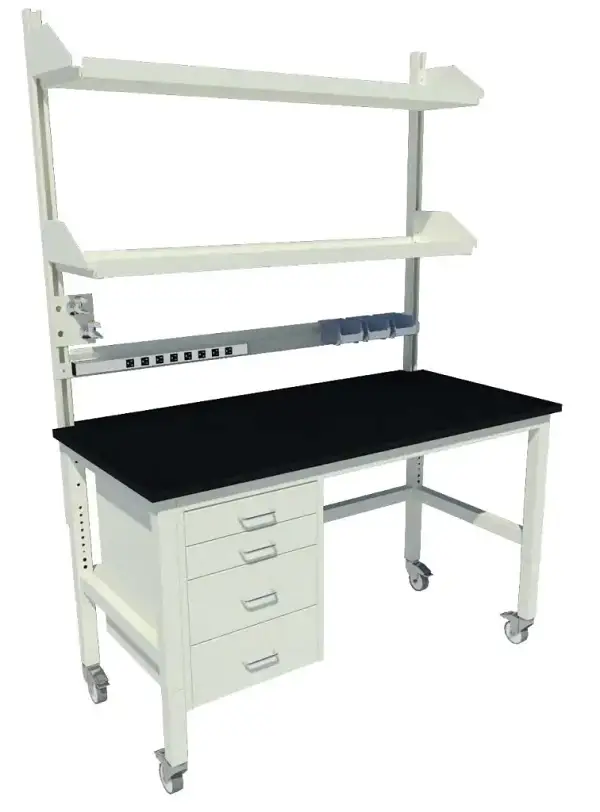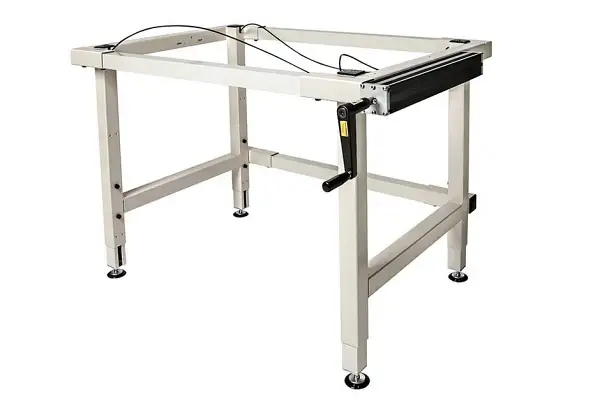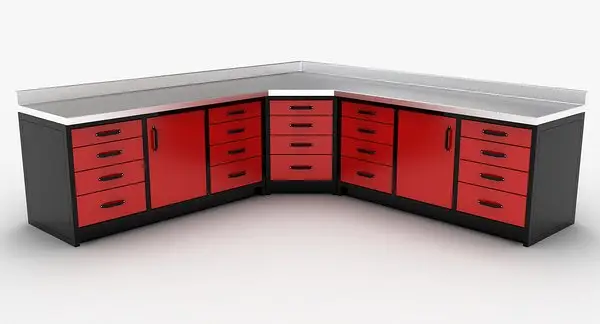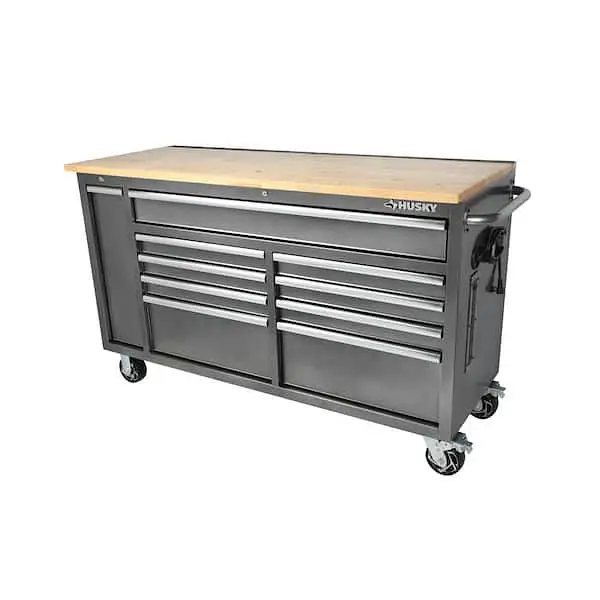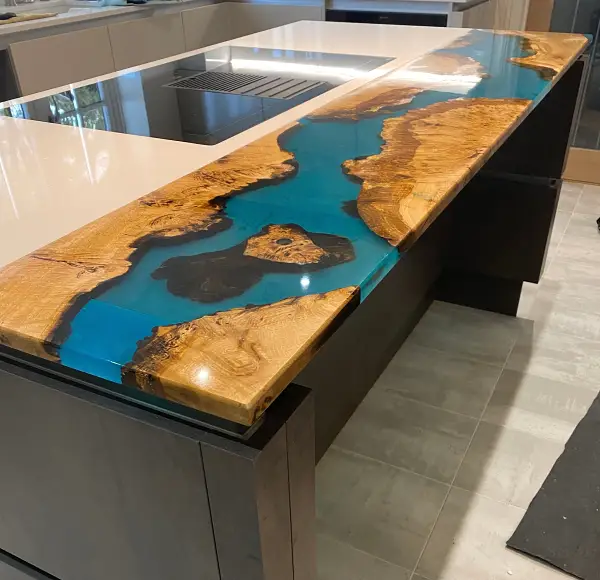The laboratory is the heart of scientific innovation. Whether in educational institutions, pharmaceutical facilities, clinical centers, or research organizations, the quality of laboratory infrastructure directly impacts research outcomes, safety, and productivity. Yet one critical component often overlooked in discussions about laboratory excellence is laboratory furnishing.
Laboratory furnishing is far more than aesthetics or comfort. It represents the physical foundation upon which groundbreaking research is conducted, where safety protocols are maintained, where compliance standards are met, and where scientists and researchers spend countless hours advancing human knowledge.
The United Arab Emirates has emerged as a regional hub for scientific research, biotechnology, and healthcare innovation. With a booming education sector, expanding pharmaceutical industry, and significant government investment in R&D, the demand for high-quality laboratory furnishing solutions has never been greater. According to market research, the UAE laboratory furniture market is valued at $17.63 million in 2025, projected to grow at a compound annual growth rate (CAGR) of 6.3% through the forecast period. Additionally, the broader UAE laboratory equipment market, which encompasses both equipment and furnishing, generated $220.3 million in 2023 and is expected to reach $290.4 million by 2030.
This article serves as your definitive guide to laboratory furnishing in the UAE, exploring its evolution, applications, standards, and best practices. Whether you're establishing a new laboratory, upgrading existing facilities, or simply seeking to understand the critical role of quality furnishing in scientific environments, this comprehensive resource will provide the insights you need.
Discover how IdeaLabs UAE's cutting-edge laboratory furnishing solutions can support your facility's growth and innovation. Know More
-
What is Laboratory Furnishing?
Laboratory furnishing encompasses all furniture and fixed infrastructure components designed specifically for scientific research and testing environments. This includes, but is not limited to:
Core Components of Laboratory Furnishing:
Laboratory workbenches and benchtops form the foundation of any scientific workspace. These are not ordinary tables; they are engineered systems designed to withstand chemical spills, support heavy equipment, resist corrosion, and maintain the precision required for sensitive research. Modern laboratory benches are constructed with materials such as epoxy resin, phenolic resin, or stainless steel, depending on the specific application and chemical exposure requirements.
Laboratory cabinets and storage solutions serve critical functions in organizing materials, protecting sensitive samples, and ensuring compliance with safety regulations. These range from closed chemical storage cabinets that prevent unauthorized access to open shelving for organized storage and quick access to frequently used materials.
Fume hoods and ventilation enclosures are essential safety devices that protect laboratory personnel from hazardous vapors, gases, and aerosols. These specialized structures combine engineered ventilation systems with containment design to ensure maximum protection while maintaining an optimal working environment.
Workstations and modular furniture systems provide flexibility in laboratory layout design. Ergonomic workstations can be adjusted to accommodate different task requirements, equipment configurations, and user preferences, promoting both efficiency and worker comfort during extended research sessions.
Specialized fixtures and accessories including sinks, eyewash stations, emergency showers, shelving systems, and organizational accessories complete the laboratory furnishing ecosystem. Each element plays a vital role in creating a functional, safe, and productive research environment.
-
The Evolution of Laboratory Furnishing: A Historical Perspective
Understanding the history of laboratory furnishing provides valuable insight into how contemporary solutions have been refined to meet modern scientific demands.
Early Period (1600s-1800s): The Birth of Organized Science
During the scientific revolution, laboratory work was conducted in makeshift spaces with crude, individually crafted equipment. Scientists manufactured their own tools and workspaces, often improvising solutions for specific experiments. By the late 1700s, as the scientific method gained acceptance, the need for more standardized laboratory spaces emerged.
Industrial Revolution Era (1800s-Early 1900s): Standardization and Innovation
The Industrial Revolution fundamentally transformed laboratory furnishing. As scientific instruments began to be mass-produced, the demand for standardized laboratory infrastructure grew proportionally. Wood became the primary material for early laboratory furniture, offering affordability and ease of customization. However, wooden furniture proved highly susceptible to damage from chemical exposure, moisture, and environmental factors.
The first documented uses of mechanically ventilated fume hoods appeared during this period, notably at the University of Edinburgh in 1869. German pharmaceutical laboratories, in particular, spearheaded innovations in laboratory design, incorporating steam-powered ventilation systems to protect workers from harmful vapors.
Mid-20th Century: The Stainless Steel Revolution
A pivotal transformation occurred during and after World War II, when stainless steel emerged as the material of choice for laboratory furniture. The superior corrosion resistance, durability, and ease of sterilization made stainless steel dramatically superior to wood. This transition coincided with the post-war scientific boom, when massive government investments in research and development led to rapid expansion of laboratory facilities worldwide.
Late 20th Century: Specialization and Compliance
As scientific disciplines became increasingly specialized, so did laboratory furnishing. Pharmaceutical labs required different furniture configurations than physics laboratories; cleanroom environments demanded entirely different approaches than conventional labs. Simultaneously, regulatory frameworks emerged, establishing strict safety standards and compliance requirements that shaped furniture design. The introduction of standardized testing protocols, such as SEFA (Scientific Equipment and Furniture Association) standards, ensured that laboratory furniture could be reliably assessed for safety and performance.
21st Century: Innovation, Sustainability, and User-Centricity
Contemporary laboratory furnishing reflects a convergence of multiple trends: sustainability, ergonomic design, modular flexibility, smart technology integration, and enhanced safety features. Modern laboratory furniture incorporates anti-microbial surfaces, energy-efficient lighting and ventilation, modular configurations that allow rapid reconfiguration, and materials designed for minimal environmental impact.
-
Laboratory Furnishing in UAE: Past, Present, and Future
The Past: Building Laboratory Infrastructure
The UAE's journey with organized laboratory facilities began in the mid-20th century, accelerating significantly following the nation's independence and the discovery of oil wealth. Early laboratory infrastructure in academic and government institutions borrowed heavily from Western designs and standards, with facilities gradually being established at the UAE University (founded in 1976) and various government research centers.
During the 1990s and 2000s, the UAE's focus on diversifying its economy beyond oil encouraged significant investment in healthcare, pharmaceuticals, biotechnology, and advanced manufacturing. This period saw the establishment of numerous research institutions, pharmaceutical facilities, and advanced diagnostic centers, all requiring modern laboratory infrastructure.
The Present: A Thriving Market
Today, the UAE laboratory furnishing landscape is characterized by rapid growth and sophistication. The nation hosts 77 active higher education institutions, including 7 public universities, 21 private universities, and 4 foreign branch campuses. Between 2016 and 2020, private schools in the UAE increased by 28%, with private school enrollment growing by 16% during the same period.
This expansion directly drives demand for modern laboratory facilities. Universities such as the UAE University, Khalifa University, and New York University Abu Dhabi have invested heavily in state-of-the-art laboratory infrastructure. Similarly, the pharmaceutical sector, which is a key pillar of the UAE's diversification strategy, requires increasingly sophisticated laboratory environments for drug development, quality control, and research.
Government initiatives have further accelerated this growth. The UAE government has committed more than AED 10 billion toward educational reforms and infrastructure development, significantly enhancing the quality and accessibility of education and research facilities.
The Future: Trends and Innovations
Looking ahead, several key trends are shaping the future of laboratory furnishing in the UAE:
Sustainability Focus: The UAE's commitment to sustainability is reflected in laboratory design. The nation aims to achieve a 70% reduction in carbon emissions by 2050, driving demand for eco-friendly materials, energy-efficient ventilation systems, and sustainable manufacturing practices in laboratory furnishing.
Modular and Flexible Design: Future laboratory spaces will increasingly feature modular, reconfigurable furniture systems that allow rapid adaptation to changing research needs and scientific disciplines.
Digital Integration: Smart laboratory furniture equipped with sensors for monitoring and inventory management, integration with laboratory information systems, and real-time safety monitoring will become increasingly common.
Ergonomic Advancement: Continued research into occupational health will drive innovations in ergonomic laboratory furniture, reducing musculoskeletal strain and improving long-term worker wellness.
Specialized Applications: Growth in sectors such as biotechnology, food safety testing, environmental monitoring, and advanced materials science will drive demand for specialized laboratory furnishing solutions.
-
Laboratory Furnishing Applications Across Major Industries
Laboratory furnishing requirements vary significantly depending on the specific application and industry. Understanding these specialized needs is crucial for selecting appropriate furniture solutions.
5.1 Academic and Educational Laboratories
Schools and Secondary Education
Secondary schools across the UAE increasingly emphasize hands-on science education. Physics labs, chemistry labs, and biology labs require durable, safe furniture that can withstand the demands of multiple student cohorts and frequent use. Laboratory benches must support microscopes, burners, and various experimental apparatus while maintaining sufficient durability for institutional use spanning multiple years.
School laboratories prioritize:
- Safety-first design with rounded edges and secure fastening
- Chemical-resistant surfaces capable of handling common lab reagents
- Modular designs allowing reconfiguration for different experiments
- Compliance with UAE educational standards and international safety protocols
Universities and Higher Education Institutions
The UAE's 7 public universities and 21 private universities operate advanced laboratory facilities. Research universities require sophisticated laboratory infrastructure supporting advanced research activities. According to research performance analyses, the UAE has demonstrated steady research growth, with universities like UAE University, Khalifa University, and New York University Abu Dhabi conducting significant research across engineering, life sciences, and applied research domains.
University laboratories require:
- Specialized workstations for specific disciplines (chemistry, biology, physics, engineering)
- Advanced ventilation systems for chemical research
- Modular systems supporting rapid reconfiguration for multi-disciplinary research
- Integration with modern laboratory information management systems
- Facilities supporting collaborative research initiatives
Research Institutes and Specialized Centers
The UAE hosts numerous specialized research centers focused on areas such as renewable energy, nanotechnology, environmental research, and biotechnology. These facilities require bespoke laboratory furnishing solutions customized to highly specific research requirements.
5.2 Healthcare and Clinical Laboratories
Hospital and Diagnostic Laboratories
Clinical laboratories are regulated environments where diagnostic testing directly impacts patient care. In the UAE, clinical laboratories must comply with Dubai Health Authority (DHA) standards and regulations established under ISO 15189:2022 standards. These regulations specify requirements for laboratory design, equipment, staffing, and operations.
Clinical laboratory furnishing must:
- Support diagnostic equipment of varying sizes and specifications
- Maintain strict hygiene and sterility standards
- Comply with biohazard containment protocols
- Support efficient workflow for processing large sample volumes
- Meet lighting, environmental control, and safety requirements specified in DHA guidelines
Pathology and Histology Laboratories
These specialized laboratories conduct tissue analysis and microscopic examination. Furnishing must support sensitive analytical equipment, maintain appropriate temperature and humidity controls, and prevent cross-contamination between samples.
Microbiological and Immunology Laboratories
These facilities require specialized safety equipment, particularly biological safety cabinets and sterile workstations. Furnishing design must support aseptic technique requirements while maintaining personnel protection.
5.3 Pharmaceutical and Manufacturing Laboratories
Research and Development Laboratories
Pharmaceutical R&D facilities require some of the most sophisticated laboratory infrastructure. These labs involve chemical synthesis, compound testing, stability studies, and numerous analytical procedures, all demanding chemical-resistant surfaces, advanced ventilation, and modular design supporting rapid reconfiguration.
Quality Control and Quality Assurance Laboratories
Pharmaceutical manufacturing in the UAE must comply with Good Manufacturing Practice (GMP) standards established by the UAE Ministry of Health and Prevention (MOHAP). These regulations specify detailed requirements for laboratory facilities, including workspace design, equipment, environmental controls, and safety systems.
Quality control labs require:
- Multiple independent workstations for parallel testing
- Specialized equipment areas with vibration isolation
- Chemical-resistant surfaces and proper chemical storage
- Advanced environmental controls (temperature, humidity)
- Compliance with GMP documentation and traceability requirements
Stability Testing Chambers and Environmental Chambers
These require specialized laboratory spaces with precise environmental control and dedicated storage systems.
5.4 Biotechnology and Life Sciences Laboratories
Biotechnology facilities combine molecular biology, cell culture, and analytical chemistry, requiring:
- Specialized containment systems for biological materials
- Incubators, centrifuges, and analytical equipment integration
- Sterile work areas and biological safety cabinets
- Dedicated storage systems for biological samples at various temperatures
5.5 Food Safety and Testing Laboratories
With a focus on food security, the UAE has developed advanced food testing capabilities. Laboratory furnishing for food safety requires:
- Specialized equipment for microbiological analysis
- Contamination prevention and hygienic design
- Compliance with food safety standards and regulations
- Integration with analytical equipment for chemical analysis
- Separation of different testing areas to prevent cross-contamination
5.6 Environmental and Water Testing Laboratories
These facilities conduct air quality analysis, water purity testing, and environmental monitoring. They require:
- Specialized equipment for collecting and analyzing environmental samples
- Chemical resistance for handling various analytical reagents
- Compliance with international environmental testing standards
- Specialized storage for reference standards and calibration materials
5.7 Oil and Gas Industry Laboratories
Supporting the UAE's petroleum sector, these laboratories conduct crude oil analysis, product testing, and environmental monitoring. Furnishing requirements include:
- Extreme chemical resistance for petroleum-based solvents
- Specialized equipment mounting for analytical instruments
- Fire-safe design principles
- Compliance with industry-specific safety standards
"Are you planning a new laboratory or upgrading existing facilities? Let IdeaLabs UAE design the perfect solution for your specific needs. Schedule your free consultation today."
-
International Standards and Compliance Requirements
Laboratory furnishing is not an arbitrary matter. Internationally recognized standards establish specific requirements for safety, performance, durability, and design. Understanding these standards is essential for ensuring laboratory excellence.
SEFA Standards (Scientific Equipment and Furniture Association)
SEFA provides the most comprehensive standards for laboratory furniture design and performance:
- SEFA 1: Standards for fume hood performance, including face velocity, containment, and safety features
- SEFA 3: Standards for the performance of laboratory surfaces under chemical exposure
- SEFA 8: Standards for the load-bearing capacity and durability of laboratory cabinets and storage systems
- SEFA 8M: Specifically addresses modular laboratory furniture systems
Furniture certified to SEFA standards provides assurance that products have undergone rigorous testing and meet defined safety and performance criteria.
ASHRAE 110 Standard
This globally recognized standard establishes the methodology for testing fume hood performance, including face velocity uniformity, airflow visualization, and containment effectiveness. Labs using ASHRAE 110-certified fume hoods can be confident in personnel protection.
EN 14175 Standard
The European standard for fume hood performance, EN 14175 provides rigorous testing protocols for containment and face velocity, ensuring effective operator protection across various working conditions.
ISO Standards for Laboratory Furniture (ISO/TC 48/SC 9)
The International Organization for Standardization maintains standards for laboratory furniture, covering construction principles, material specifications, product safety, performance standards, dimensions, and testing methodologies.
UAE and Dubai-Specific Regulations
In addition to international standards, laboratories in the UAE must comply with local regulations:
- Dubai Health Authority (DHA) Standards: Clinical laboratories must comply with DHA Standards for Clinical Laboratory Services, which specify requirements for laboratory design, equipment, environmental controls, and safety systems. New ISO 15189:2022 standards, effective from January 2024, further enhanced these requirements with emphasis on patient focus, risk management, cybersecurity, and business continuity.
- UAE Ministry of Health and Prevention (MOHAP): Pharmaceutical facilities must comply with GMP (Good Manufacturing Practice) standards specified by MOHAP, which include detailed requirements for laboratory design, equipment, environmental controls, and quality assurance systems.
- UAE Ministry of Education: Educational laboratories must comply with standards established for school and university laboratory facilities, ensuring student safety and supporting effective science education.
Ensure your laboratory meets all compliance requirements while maximizing efficiency. IdeaLabs UAE specialists understand UAE regulations and international standards. Contact us for expert guidance."
-
Key Features of Modern Laboratory Furniture
Contemporary laboratory furniture incorporates numerous advanced features designed to enhance safety, efficiency, ergonomics, and sustainability.
Chemical-Resistant Materials
Modern laboratory surfaces are engineered to resist corrosion from common laboratory chemicals, including acids, bases, solvents, and oxidizing agents. Common materials include:
- Epoxy Resin: Excellent chemical resistance, durability, and aesthetic appeal; commonly used for laboratory benchtops
- Phenolic Resin: Superior heat and chemical resistance; preferred for pharmaceutical and chemical labs
- Stainless Steel: Excellent durability, ease of sterilization, and corrosion resistance; essential for biotech and clinical labs
- Sustainable Materials: Modern labs increasingly use recycled metals and bioplastics to minimize environmental impact while maintaining performance
Ergonomic Design Features
Prolonged laboratory work can result in musculoskeletal strain and occupational health issues. Modern laboratory furniture addresses this through:
- Adjustable Height Workstations: Allow users to adjust working height to minimize strain
- Modular Components: Permit customization to accommodate individual needs and preferences
- Soft-Touch Surfaces: Reduce fatigue during extended use
- Proper Ventilation Integration: Well-designed workstations integrate smoothly with ventilation systems, minimizing disruptive airflow patterns
- Anti-Fatigue Mats: Reduce strain when standing for extended periods
Modular and Flexible Design
Modular laboratory furniture systems offer unprecedented flexibility:
- Rapid Reconfiguration: Change laboratory layout to accommodate new research directions without complete replacement
- Scalability: Add or remove components as research needs evolve
- Space Optimization: Maximize utilization of available laboratory space
- Cost Efficiency: Extend furniture lifespan through reconfiguration rather than replacement
- Future-Proofing: Accommodate technological advances without major infrastructure changes
Advanced Ventilation Integration
Modern laboratory furniture integrates seamlessly with ventilation systems:
- Fume Hoods with Intelligent Controls: Variable-speed fans adjust airflow based on sash position and activity, optimizing safety while reducing energy consumption
- Ductless Systems: Advanced filtration systems allow hoods without dedicated ductwork
- Canopy Hoods: Capture vapors rising from open containers
- Source Capture Systems: Target specific emission points for maximum efficiency
Safety Features
Multiple safety elements are integrated into contemporary laboratory furniture:
- Lockable Cabinets: Secure storage for hazardous materials and sensitive samples
- Integrated Safety Equipment: Emergency eyewash and shower areas
- Fire-Resistant Materials: Comply with fire safety regulations
- Anti-Microbial Surfaces: Reduce contamination risk in clinical and biotech labs
- Static-Dissipative Materials: Prevent electrostatic discharge in sensitive electronics labs
- Proper Containment: Prevent chemical spills from affecting surrounding areas
Sustainability Features
Modern laboratory furniture reflects environmental responsibility:
- Recycled Materials: Incorporation of recycled metals and plastics
- Energy Efficiency: Low-energy ventilation systems and LED lighting
- Water Conservation: Efficient cooling systems and water-saving fixtures
- Extended Lifespan: Durable design and modular systems extend equipment life
- End-of-Life Recycling: Designed for disassembly and material recovery
Smart Technology Integration
Emerging innovations include:
- Inventory Management Systems: Track chemical and supply inventory automatically
- Environmental Monitoring: Real-time monitoring of temperature, humidity, and ventilation
- Safety Monitoring: Alert systems for equipment malfunctions or safety protocol violations
- Integration with LIMS: Seamless connection with Laboratory Information Management Systems
- User-Centric Analytics: Track usage patterns to optimize laboratory operations
Looking for laboratory furniture combining safety, ergonomics, and sustainability? Explore IdeaLabs UAE's innovative solutions designed for modern laboratories."
-
Choosing the Right Laboratory Furnishing Partner: Why IdeaLabs UAE Stands Out
Selecting a laboratory furnishing provider is a critical decision that impacts laboratory performance, safety, and long-term operational costs. Multiple factors should guide this selection.
Essential Criteria for Evaluating Laboratory Furnishing Providers:
Expertise and Industry Knowledge
The ideal partner should demonstrate deep understanding of laboratory requirements across multiple industries. They should comprehend the nuanced differences between academic laboratory needs, pharmaceutical manufacturing requirements, clinical laboratory standards, and specialized research applications. They should be conversant with international standards (SEFA, ASHRAE, ISO) and local UAE regulations (DHA, MOHAP, Ministry of Education).
Quality and Durability
Laboratory furniture represents a significant investment that should provide reliable service for many years. Evaluate providers based on:
- Material specifications and certifications
- Compliance with safety standards
- Track record of customer installations
- Warranty and after-sales support
- Testimonials from existing clients
Customization Capabilities
Laboratories have unique requirements. The ideal provider should offer:
- Bespoke design services tailored to specific applications
- Modular systems allowing configuration flexibility
- Integration with existing infrastructure and equipment
- Professional consultation to optimize laboratory layout and workflow
- Ability to adapt designs as research needs evolve
Compliance and Regulatory Expertise
Laboratory furnishing must comply with complex regulatory frameworks. Select providers that:
- Demonstrate knowledge of DHA, MOHAP, and other UAE-specific regulations
- Maintain current understanding of evolving standards (e.g., ISO 15189:2022)
- Provide documentation and certifications proving compliance
- Support facilities through accreditation and inspection processes
- Maintain up-to-date knowledge of international standards
Project Management and Installation
Turning laboratory designs into functional reality requires excellent execution:
- Professional project management from concept through completion
- Skilled installation teams experienced with laboratory projects
- Minimal disruption to ongoing operations
- Adherence to timelines and budgets
- Post-installation support and optimization
Sustainability and Innovation
Forward-thinking providers should:
- Incorporate sustainable materials and practices
- Stay current with emerging technologies and innovations
- Demonstrate commitment to environmental responsibility
- Align with institutional sustainability goals
- Provide guidance on energy-efficient design
Why IdeaLabs UAE is the Optimal Choice:
Pioneer Status in the Region
IdeaLabs UAE proudly stands as a pioneer in laboratory innovations throughout the Middle East and Africa region. This heritage reflects decades of dedicated focus on laboratory furnishing excellence, accumulated expertise across diverse applications and environments, and proven success in delivering exceptional laboratory infrastructure.
Specialized Expertise
Unlike generalist furniture providers, IdeaLabs specializes exclusively in laboratory furnishing. This focused expertise means:
- Deep understanding of laboratory-specific requirements
- Familiarity with international standards and best practices
- Experience across diverse laboratory types (academic, pharmaceutical, clinical, research)
- Knowledge of UAE-specific regulatory requirements
- Ability to provide expert guidance during facility planning
Advanced Cutting-Edge Solutions
IdeaLabs manufactures and delivers advanced, cutting-edge laboratory furnishing solutions specifically designed for modern laboratories. These solutions incorporate:
- Latest innovations in materials and design
- Integration of smart technology for enhanced safety and efficiency
- Sustainable and environmentally responsible approaches
- Ergonomic design promoting worker wellness and productivity
- Modular systems enabling flexibility and future adaptation
Customization and Personalization
Recognizing that every laboratory is unique, IdeaLabs offers comprehensive customization:
- Custom design services tailored to specific applications
- Modular configurations allowing precise fit to available space
- Integration with specialized equipment and existing infrastructure
- Professional consultation optimizing laboratory layout and workflow
- Ongoing support adapting design as research needs evolve
Uncompromising Quality and Durability
IdeaLabs is committed to superior craftsmanship:
- High-quality materials meeting international standards
- Rigorous quality control throughout manufacturing
- Certifications demonstrating compliance with SEFA, ASHRAE, ISO, and UAE standards
- Extended warranties reflecting confidence in product durability
- Proven track record of long-lasting installations
Sustainability Leadership
IdeaLabs shares commitment to environmental responsibility:
- Use of sustainable and recycled materials where possible
- Energy-efficient design reducing operational costs
- Modular systems extending furniture lifespan through reconfiguration
- Alignment with UAE's sustainability goals and 2050 vision
- Eco-conscious manufacturing processes
Exceptional Customer Service
The IdeaLabs commitment extends beyond product delivery:
- Dedicated project managers guiding clients through entire process
- Expert consultation optimizing laboratory design
- Professional installation minimizing disruption
- Comprehensive after-sales support and maintenance
- Responsive technical assistance when needed
Empower Your Laboratory with IdeaLabs UAE
Whether you're establishing a new laboratory facility or upgrading existing infrastructure, IdeaLabs UAE provides the expertise, quality, and innovation needed for laboratory excellence. Our team of specialists is ready to understand your unique requirements and design solutions that exceed expectations.
Contact IdeaLabs UAE today to schedule a consultation with our laboratory furnishing specialists. Let us help you create a laboratory environment that empowers your scientists and researchers, meets all compliance requirements, and supports your institution's research and educational mission.
-
The Future of Laboratory Furnishing in UAE
The UAE laboratory furnishing sector stands at an exciting inflection point. Several converging trends will shape the industry's trajectory:
Accelerating Growth and Investment
Continued government commitment to research and education, expansion of the pharmaceutical sector, and growth in biotechnology will drive sustained demand for modern laboratory infrastructure. The projected 6.3% CAGR for laboratory furniture through the forecast period reflects strong and consistent growth.
Technological Integration
Smart laboratory systems integrating furniture with monitoring, inventory management, and laboratory information systems will become increasingly prevalent. These systems will enhance safety, improve efficiency, and provide valuable operational insights.
Sustainability as Standard Practice
Environmental responsibility will transition from competitive advantage to baseline expectation. Laboratories across the UAE will increasingly demand sustainable materials, energy-efficient design, and carbon-neutral operations.
Specialization Deepening
As scientific disciplines become increasingly sophisticated, laboratory furnishing will become even more specialized. Providers with deep expertise in specific laboratory types (cleanroom, pharmaceutical, biotech, clinical) will command premium positioning.
Regional Leadership
The UAE's position as a regional hub for research and innovation will likely attract specialized laboratory furnishing providers and manufacturers, further consolidating the market and increasing service quality.
Conclusion
Laboratory furnishing represents far more than tables and cabinets. It embodies the physical infrastructure supporting scientific discovery, protecting human safety, ensuring regulatory compliance, and enabling breakthrough research that advances society.
The UAE's rapidly evolving laboratory sector, marked by expanding educational institutions, growing pharmaceutical industries, and significant research investments, creates substantial opportunities for institutions seeking to establish or upgrade laboratory facilities. Understanding laboratory furnishing requirements, international standards, and available solutions is essential for making informed decisions that deliver long-term value.
As you consider laboratory furnishing solutions for your institution—whether academic, clinical, pharmaceutical, or research—prioritize partners demonstrating deep expertise, commitment to quality, and dedication to innovation. IdeaLabs UAE, as a pioneer in laboratory innovations throughout the Middle East and Africa, stands ready to deliver the advanced, customized solutions your laboratory deserves.
Your laboratory's success depends on many factors, but none more fundamental than the physical infrastructure supporting your scientists and researchers. Choose furnishing that reflects your institution's commitment to excellence, safety, and innovation.
Ready to transform your laboratory? Contact IdeaLabs UAE today. Our laboratory furnishing specialists will work with you to understand your unique requirements, design customized solutions, and deliver infrastructure supporting your institution's mission for years to come.
Together, let's create laboratory environments where breakthrough science happens.
"Transform your laboratory today. Contact IdeaLabs UAE to schedule a consultation with our laboratory furnishing specialists. Let's create a workspace where innovation thrives."


